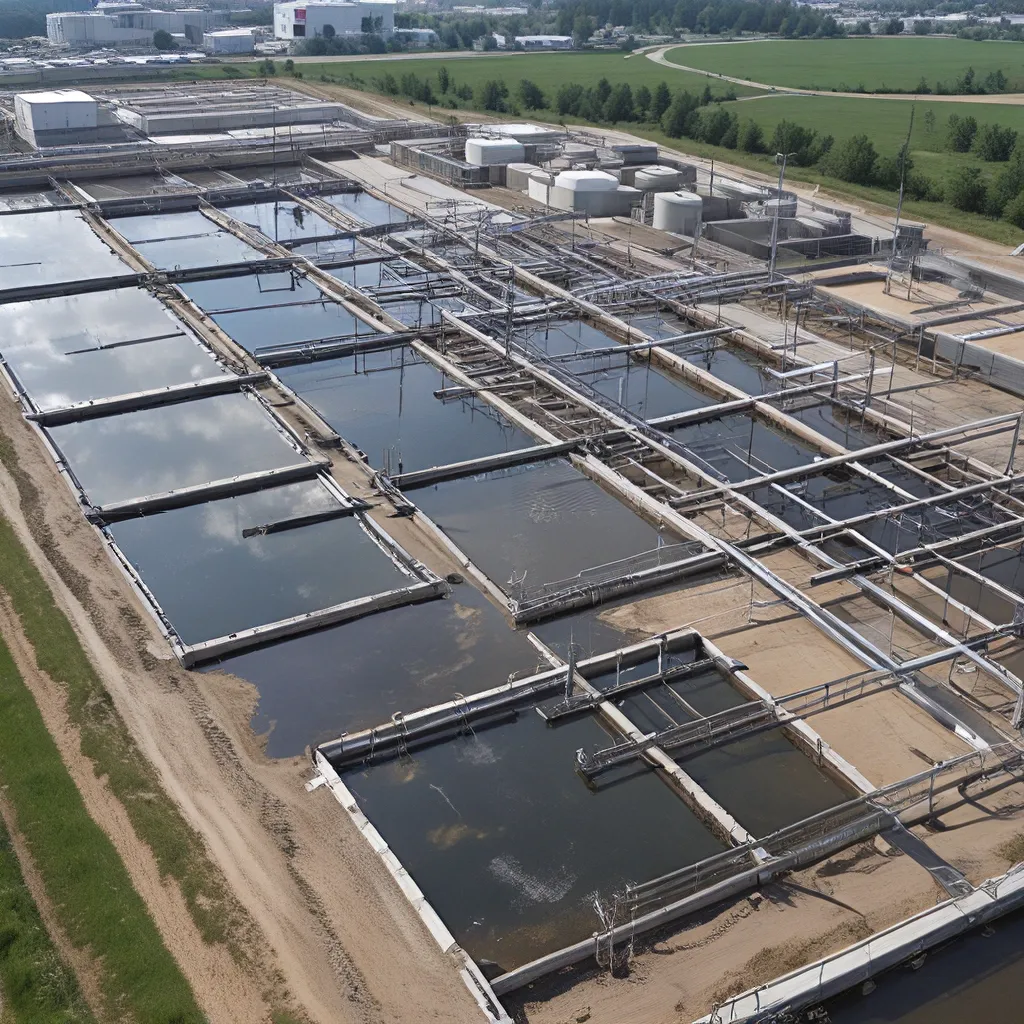
The Electrifying World of Wastewater Treatment
I’ll admit, when I first started learning about wastewater treatment, I was a bit skeptical. It seemed like a pretty dry and technical topic, no pun intended. But as I dug deeper, I realized that there’s a whole world of fascinating innovation happening in this field – and it’s being driven by the power of electrochemistry.
Recent research has shown that electrochemical processes are emerging as game-changers in wastewater purification and remediation. These technologies are capable of tackling a wide range of contaminants, from heavy metals to organic pollutants, in a highly efficient and environmentally-friendly way.
The Power of Electrochemistry
At the heart of these advancements is the fascinating field of electrochemistry. Simply put, electrochemistry is the study of the interplay between electrical and chemical processes. In the context of wastewater treatment, it allows us to harness the power of electricity to drive chemical reactions that can remove or transform harmful substances.
One of the key benefits of electrochemical processes is their versatility. They can be tailored to target specific contaminants, making them a highly adaptable solution for a variety of wastewater treatment challenges. Whether you’re dealing with industrial effluents, municipal sewage, or even agricultural runoff, the right electrochemical approach can be the key to effective remediation.
Electrochemical Oxidation: A Powerful Purification Technique
One of the most promising electrochemical techniques for wastewater treatment is electrochemical oxidation. This process uses an electrical current to generate oxidizing agents, such as hydroxyl radicals and chlorine species, which can then break down and destroy organic pollutants.
Research has shown that electrochemical oxidation can be highly effective at removing a wide range of contaminants, including pesticides, pharmaceuticals, and personal care products. And the best part? It can do all of this without the need for additional chemical additives, making it a sustainable and environmentally-friendly solution.
But the benefits of electrochemical oxidation don’t stop there. This technology can also be used to disinfect wastewater, killing off harmful microorganisms like bacteria and viruses. This is particularly important for ensuring the safety of water that’s being reused or discharged back into the environment.
Tackling Heavy Metals with Electrochemical Processes
Another area where electrochemical processes are making a big impact is in the removal of heavy metals from wastewater. These toxic substances can be a major concern in industrial or mining effluents, and traditional treatment methods can be costly and inefficient.
Cutting-edge research has shown that electrochemical techniques like electrocoagulation and electrochemical precipitation can be highly effective at removing heavy metals like lead, cadmium, and chromium from wastewater. These processes use an electrical current to induce the formation of metal hydroxides or other insoluble compounds, which can then be easily separated from the treated water.
What’s really exciting is that these electrochemical methods can often achieve better removal rates and lower operating costs compared to traditional heavy metal removal techniques. And as an added bonus, the recovered metals can sometimes be recycled or repurposed, further enhancing the sustainability of the process.
A Future Powered by Electrochemistry
As I’ve delved deeper into this topic, I’ve become increasingly convinced that electrochemical processes are going to be a game-changer in the world of wastewater treatment. The ability to tailor these technologies to target specific contaminants, combined with their efficiency, cost-effectiveness, and environmental friendliness, makes them a truly promising solution for the challenges we face.
Of course, there’s still a lot of ongoing research and active debate in this field. Experts are constantly exploring new ways to optimize these processes, and there’s always the possibility of evolving conclusions as the science progresses. But one thing is clear: the future of wastewater treatment is electric, and it’s being powered by the incredible potential of electrochemistry.
So, if you’re interested in learning more about how Alpha Wastewater is harnessing the power of these cutting-edge technologies, I encourage you to explore our website or reach out to our team. Who knows, you might just get as excited about wastewater treatment as I am!